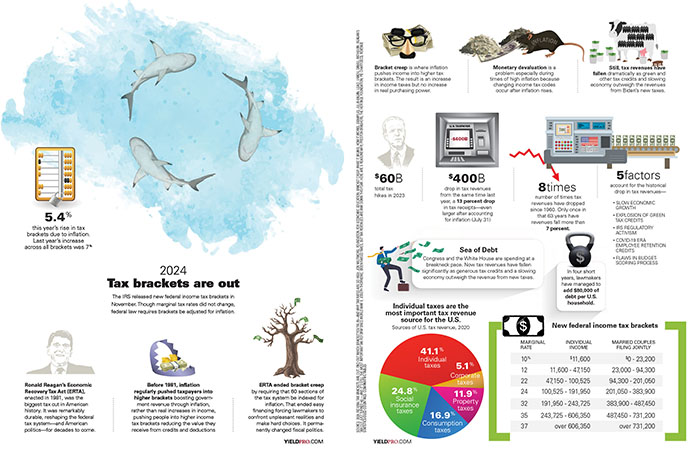This past April the National Fair Housing Alliance (NFHA), a consortium of civil rights groups, attacked the Department of Housing and Urban Development (HUD) and the Department of Justice (DOJ) for what it called Their “inexcusable failure to enforce Fair Housing law.” Criticism of this sort is hardly new; in fact government agencies –federal, state and local — have been under near constant attack from what civil rights groups have perceived to be their lack of commitment to Fair Housing enforcement, if not their lack of commitment to civil rights in general.
The problems encountered by the housing industry are, of course, far different than those cited by the advocates. For one thing, it is not the lack of enforcement activity that housing providers find objectionable, but the government’s failure, among other things, to complete investigations in anything remotely close to the 100-day period Congress envisioned. While unconscionable delays in case processing are bad enough, the number of patently frivolous cases that enforcement agencies choose to pursue is also on the rise.
FAIR HOUSING LAWS
1968’s Federal Fair Housing Act outlawed discrimination on the basis of race, color, national origin and religion. Sex (or gender) was added as a protected category in 1974. Fair Housing’s most significant changes, however, came with passage of the Fair Housing Amendments Act of 1988 (FHAA). Two new protected categories were added — handicap and familial status.
While “adult only” communities were outlawed, the amendments also added a hopelessly complex and unenforceable set of rules called the Housing for Older Persons Exemption, which, as its name implies, allows certain communities to legally discriminate against families with children. The FHAA also expanded the government’s authority to investigate and prosecute Fair Housing violations.
Along with increased federal authority came increased funding for the Fair Housing Initiatives Programs (FHIPs). First established in 1987, the FHIP program funds public and private non-profit organizations, such as NFHA and its members, to develop programs designed to prevent or eliminate discriminatory housing practices. According to NFHA, FHIP grantees now handle over 70 percent of all housing discrimination claims. In 2004, Congress appropriated over $20 million dollars to Fair Housing advocacy groups in 96 cities.
Funding was also increased for the Fair Housing Assistance Program (FHAP). The FHAP program funds state and local government agencies to administer and enforce their own set of Fair Housing laws. In 2004, Congress appropriated over $27 million dollars to 99 state and local agencies.
While FHIP and FHAP grantees have always clamored for more federal funds, by anyone’s standards, the bureaucracy that administers the Fair Housing laws of this country is enormous.
FAIR HOUSING BECOMES POLITICIZED
The civil rights community, always at odds with Republican administrations, expected much from Bill Clinton. Indeed, in the early days of the Clinton administration, things looked very promising, as Clinton began appointing a number of former civil rights advocates to high level positions within HUD and DOJ. In turn, these former advocates eagerly began “reinventing” government in their own image. An early purge of some Republican holdovers with real or imagined ties to the housing industry was only the first step in turning the government’s Fair Housing bureaucracy into an instrument of political change. While HUD secretary Henry Cisneros and his Fair Housing chief, Roberta Achtenberg, wasted no time in trying “to change the culture at HUD,” it took several more years, before the full effects of the Cisneros/Achtenberg program could be felt.
While HUD’s backlog of unprocessed cases steadily worsened during the Cisneros/Achtenberg era, Cisneros’ successor, Andrew Cuomo, took the government’s Fair Housing program to unprecedented levels of despair.
To start, Cuomo imposed on his rank and file employees such things as ill-conceived Strategic Plans, Annual Performance Plans, and Business Operating Plans. Not surprisingly, FHEO staff rebelled, finding this type of management strategy to be condescending and demoralizing.
Second, Cuomo created what his ever present public relations staff billed as a “Hot Case” program. Although designed on paper to identify cases worthy of prosecuting, the program led to even longer delays in case processing, as each so-called “hot case” was subjected to interminable reviews and re-reviews by headquarters’ staff, including Cuomo’s public relations office.
Lastly, Cuomo mandated that HUD “double” its enforcement actions. Again, while rhetoric of this sort may have sounded hopeful to the civil rights community, in actuality the plan led FHEO offices to begin a pattern of deceptive number-crunching that exists to this day. Indeed, the only doubling that was evident to observers was a doubling of morale problems and employee grievances. In short, according to a recent study, by the end of the Cuomo era “HUD had lost control of its own enforcement process.”
But Clinton and his HUD secretaries are not the only ones to blame. DOJ’s problems, for example, became most evident during the early days of the Bush II administration. Despite Attorney General John Ashcroft’s 2003 pronouncement that, “We will prosecute those who violate the Fair Housing Act,” the number of cases filed by DOJ under Ashcroft has also been steadily declining, to the great dismay of the advocacy community. In addition, internal conflicts within DOJ are on the rise, as career civil rights lawyers find themselves on the losing side of policy disputes with Bush appointees.
In fact, several career DOJ lawyers have resigned in apparent protest rather than face reassignment to other divisions within Justice, all of which prompted civil rights advocates to call for Congressional hearings into the matter last year. The conflict between career employees and political appointees is almost certainly to blame for the decrease in the number of complaints filed with the federal government, as Fair Housing groups, who process about 70 percent of all claims, have learned that bypassing the current administration may be the best thing to do for their clients.
The hallmark of the Bush II administration, however, has been their expertise in delivering mixed and contradictory messages to both HUD and DOJ staff. While administration officials pay lip service to the importance of Fair Housing enforcement, fewer and fewer cases are actually being prosecuted. And for the first time, officials are now exercising prosecutorial discretion to block the prosecution of “technical violations” they feel are unworthy of the government’s time and resources.
PROBLEMS FOR THE HOUSING INDUSTRY
All of these problems have come at a cost to housing providers, especially those that find themselves named as defendants in Fair Housing complaints. For one thing, career investigators, still subject to strategic goals and operating plans, remain under pressure to find discrimination among their backlog of unprocessed cases. Ironically, the pressure to charge so-called “cause” cases has actually led agencies to place marginal if not frivolous cases on equal footing with valid ones, at least during the investigative stage. Frivolous cases that should be dismissed with little or no investigation remain “open” for months if not years without any actual investigation taking place.
Marginal cases that manage to make it through the investigation stage are then subject to the same reviews and re-reviews common during the Cuomo era, as many offices strain logic and established legal theory to “find” discrimination where none reasonably exists. In turn, precious resources, to say nothing of the emotional cost that comes with being named as a respondent in one of these cases, are spent defending cases that have no business being investigated at all, much less being tied up for months if not years in a morbidly inefficient bureaucracy.
RECOMMENDATIONS FOR CHANGE
NFHA recently suggested a number of ways to improve Fair Housing enforcement. Not surprisingly, their first proposal was that additional federal funds be appropriated to — you guessed it — the advocacy community, state and local enforcement agencies and, of course, HUD’s Fair Housing program. If we learned anything from Lyndon Johnson’s Great Society, however, it should be that pouring additional dollars into mismanaged social programs has dubious benefits, at best. With additional funds, advocacy groups envision a system that will produce more enforcement actions. Demanding that the government prosecute more cases, however, is sadly reminiscent of Cuomo’s “doubling” effort.
Another recommendation from NFHA is that HUD’s Fair Housing Office be made an independent agency led by career employees rather than political appointees. While a Kerry victory might have meant more federal funds for Fair Housing enforcement, it’s unlikely that either party would have wanted to lose political control of the Fair Housing bureaucracy.
One recommendation we can all agree on, however, is that government agencies must become more efficient at handling the complaints they do have. But how? These are my recommendations.
To begin, enforcement agencies must implement a triage program to weed out patently frivolous cases as quickly as possible. What do I mean by a frivolous case? How is this for an example? Several years ago a man filed a complaint with HUD alleging that the Central Intelligence Agency had assisted his ex-wife in getting the marital dwelling in the divorce. The man went on to say that the CIA had been trying “to force me to change my political view, and become a Democrat.”
At one time, agencies were permitted to close cases like this without actually having to investigate them. But housing advocates objected that too many valid complaints were being tossed out along with the frivolous ones.
As a result, by the mid-1990s “administrative closures” had, in essence, become outlawed. Complaints that should have been dismissed were now being passed on to investigators who, regrettably, were either ill-equipped or disinclined to discern for themselves the distinction between a case worth spending time on and a case that should be closed in the absolute shortest amount of time. At the same time, measuring an investigator’s competence by totaling up the number of cases he or she investigates in a given reporting period has also proved to be counterproductive, as we saw with Cuomo’s management plans and doubling effort.
On the other hand, agencies should be encouraged to bring back one of Cuomo’s ideas, that of identifying “hot cases” at an early stage, as long as the agency remembers that its job is to fairly investigate claims of housing discrimination rather than in garnering favorable publicity for its political appointees.
Implementing these recommendations with the funds that already exist should reduce the number of dormant cases awaiting agency action, reduce the number of days on average it takes investigators to close cases and thus reduce the terrible backlog of cases.
UNFORTUNATELY, THE FUTURE IS NOT BRIGHT
Instead of implementing any of my Recommendations, the latest incarnation in the government’s efforts to improve its Fair Housing record is to create the National Fair Housing Training Academy (NFHTA). HUD calls NFHTA, to be located on the campus of Howard University in Washington, D.C., “the center of development for our nation’s civil rights professionals.”
In creating NFHTA, HUD plans to certify investigators after they successfully complete the academy’s 200-hour core curriculum. In fact, certification will be required for all HUD and FHAP investigators in areas such as “core values of fairness and equal opportunity, respect for the dignity of all those we serve, professionalism and personal and organizational integrity.” While such goals are laudable, it remains to be seen how effective this type of intensive, expensive and lengthy training will be, given that the typical investigator is already subject to hours upon hours of in-house training each year.
More important is what HUD cannot possibly teach at its academy. Although exceptions surely exist, Fair Housing personnel are, at heart, housing advocates. Many blithely accept the allegations of complainants at face value. Many view anyone connected to the housing industry with suspicion and scorn. Thus, for many investigators any adverse action that a rental agent or manager takes against a minority or disabled person, no matter how valid and necessary, is presumed to be evidence of discrimination. In short, the vast majority of investigators have little or no appreciation for the difficult job housing industry professionals face on a daily basis. Including some courses taught by instructors from the housing industry would be an excellent addition to NFHTA’s curriculum, although one that is not likely to happen either.
Finally, if recent HUD and DOJ memoranda are any indication, the government’s Fair Housing program will remain in trouble for some time to come. In “Know Your Rights — Are you Limited English Proficient (LEP)?” the federal government has declared it discriminatory when condominium or apartment managers “only speak English.” Alas, this is not a misprint. In fact these memos go on to invite non-English speaking individuals to file Fair Housing complaints alleging national origin discrimination in cases where, “The landlord communicates important information to you only in English, but you do not read or understand English well enough to understand the information.” It is too early to tell what impact memos like this will have. Whether such nonsense will ever reach a court of law is unclear. That additional complaints will be filed against English-only speaking agents, owners and managers, however, can be fairly anticipated — exactly what no one in the industry needs to hear right now.
Author: Steve Edelstein, ESQ.















